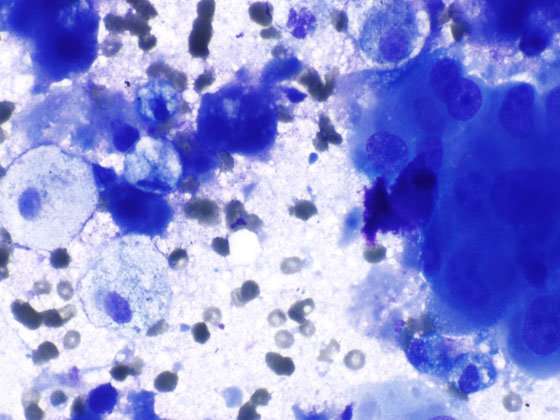3-D Human Cancer Model Offers Novel Insights into Cancer Progression

Lung adenocarcinoma. Credit: Librepath, Wikipedia
Study in a Sentence: Researchers recently developed a three-dimensional cellular model of lung cancer encased within a clear gelatinous matrix that allowed them to study the interaction between the tumor cells, immune cells, and the tumor microenvironment. They found that the cancer’s ability to grow, transform, and spread elsewhere is enhanced by higher stiffness in the matrix surrounding the cells as well as by the presence of a certain type of immune cell called a macrophage.
Healthy for Humans: This study offers a deeper understanding of how human cancers can metastasize to other parts of the body. It also provides an experimental model to screen for drug candidates to modulate this process.
Redefining Research: The study highlights the critical role of the mechanical properties of the tumor microenvironment in cancer progression. It demonstrates the value of studying disease processes in 3-D, human-relevant models that can be readily manipulated without inducing harm to animals.
References
- Reference link: http://iopscience.iop.org/article/10.1088/1758-5090/aaafbc/meta Reference citation: Alonso-Nocelo M. Matrix stiffness and tumor-associated macrophages modulate epithelial to mesenchymal transition of human adenocarcinoma cells. Biofabrication. 2018 Mar 28;10(3):035004.







